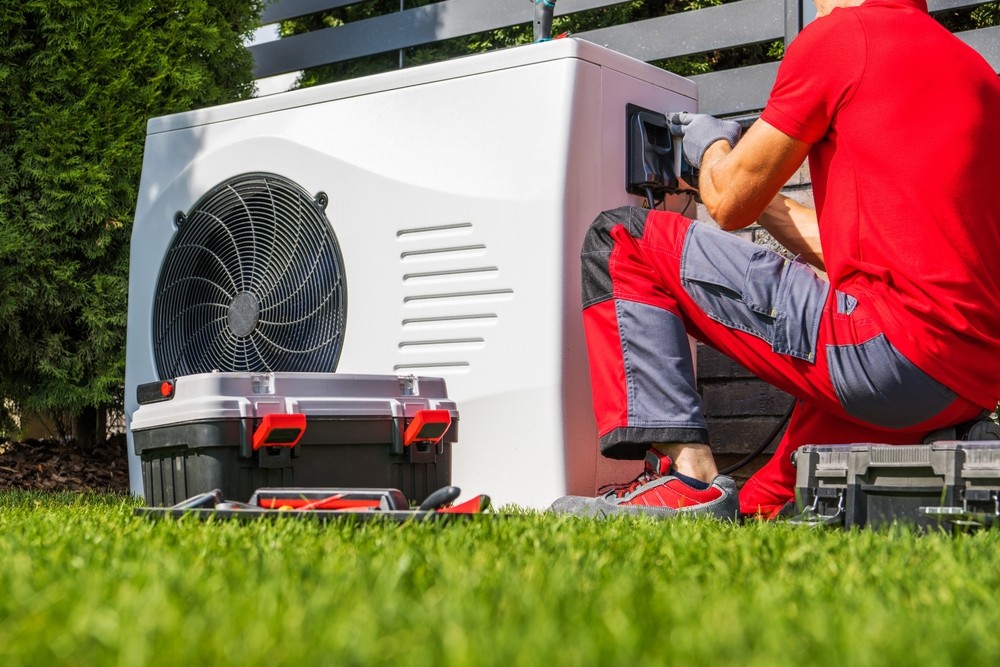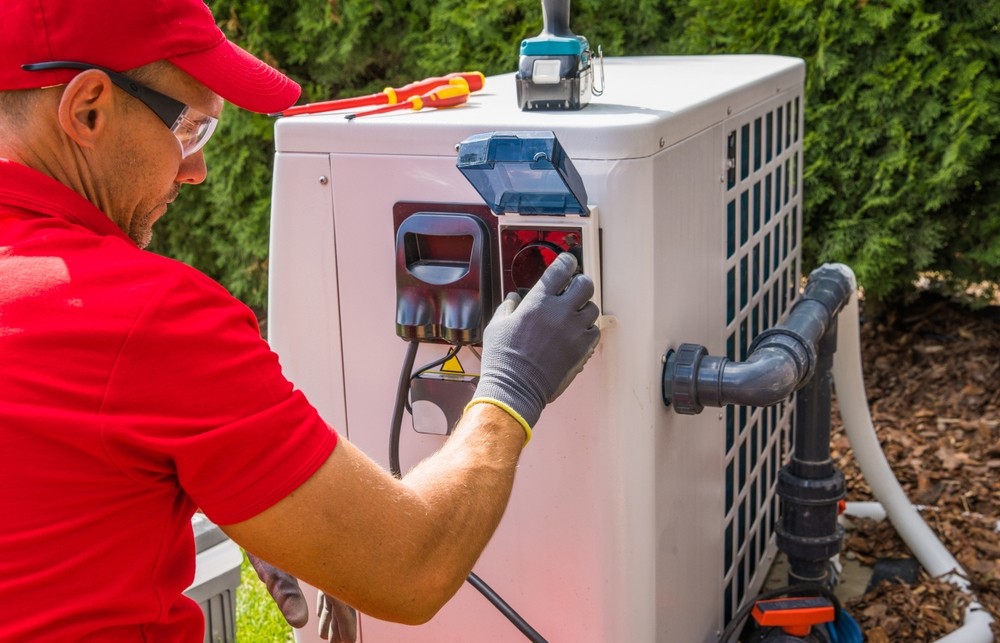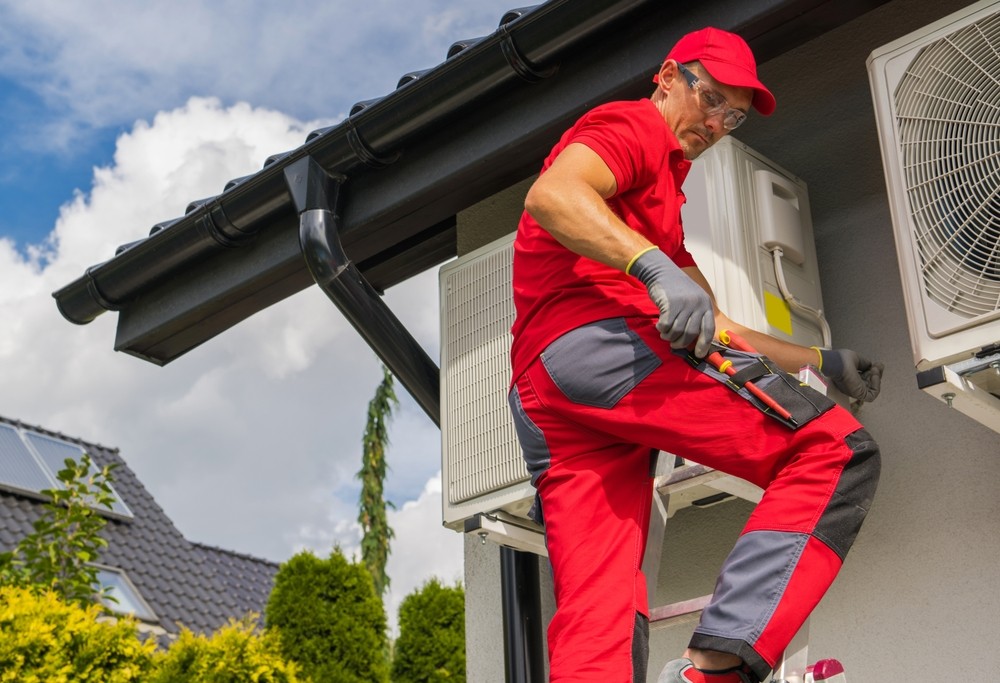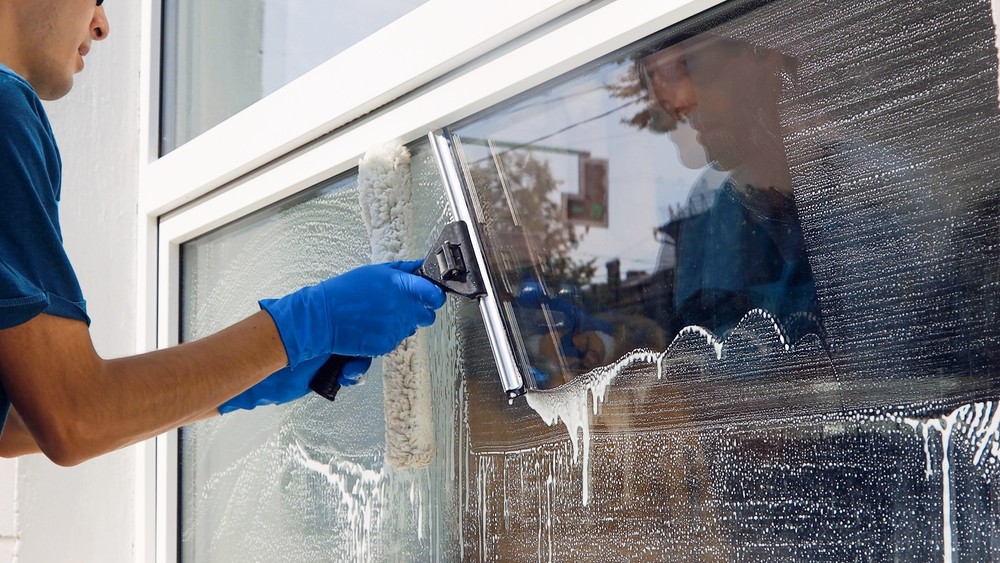
Blog
November 8, 2024
Top Website Maintenance Tips for HVAC Businesses to Stay Ahead of the Competition

Blog
November 8, 2024
Top Website Maintenance Tips for HVAC Businesses to Stay Ahead of the Competition
A well-maintained website is a powerful tool for HVAC businesses. From enhancing page speed and mobile accessibility to ensuring security and optimized local SEO, these website maintenance strategies help you attract new clients and build trust. Read on to learn the key steps to keep your HVAC website running smoothly, driving leads, and delivering a top-notch experience for every visitor.
The Ultimate Website Maintenance Guide for HVAC Businesses
For HVAC businesses, having a well-maintained website is crucial to staying competitive. A seamless, fast, and informative website appeals to potential customers and helps your business rank higher on search engines. Regular maintenance ensures your website performs at its best, capturing leads and providing a great user experience. Below are essential tips to help HVAC companies keep their websites optimized, professional, and effective.
Optimize for Speed
Page speed is critical for any website. A slow-loading site can frustrate users, leading to higher bounce rates and reduced conversions. For HVAC businesses, where clients often need urgent services, a fast-loading website can be the difference between gaining or losing a customer.
Utilize a Content Delivery Network (CDN): This will store your website data in multiple locations, reducing users' load times by serving the closest data location.
Optimize Images: Large images slow down pages. Use image compression tools to keep images under control without compromising quality.
Reduce HTTP Requests: To lower loading times, reduce the number of elements on your page, including images, scripts, and CSS files.
Ensure Mobile Friendliness
With over half of website traffic from mobile devices, guaranteeing your website is mobile-friendly is essential. HVAC customers often search for services on mobile when they're experiencing issues and need immediate assistance.
Responsive Design: Ensure your site adapts to various screen sizes, ensuring device usability.
Test on Multiple Devices: Regularly experiment with your website on various mobile devices and screen dimensions to identify and fix any issues.
Effortless Navigation: Mobile users should be able to quickly navigate your site to find contact information or service pages.
Keep Security Tight
Cybersecurity is crucial to protect both your business and your customers' data. A breach can damage your reputation, cause financial loss, and affect your SEO rankings.
Install an SSL Certificate: An SSL certificate secures your site and shows visitors that it's safe to use.
Regular Safety Audits: Regularly audit your website for susceptibilities and update security protocols.
Use Strong Passwords: Ensure all backend logins use robust passwords and enable two-factor authentication if available.
Update Content Regularly
New content signals to search engines that your website is active and relevant. For HVAC businesses, this can mean updating blog posts, adding new services, or updating service areas as your company grows.
Regular Blog Posts: Posting informative blogs about HVAC maintenance, seasonal tips, and common issues can attract new visitors.
Update Service Pages: Add any new services or updates to existing services to reflect your current offerings.
Refresh Old Content: Regularly revisit older blog posts and pages to update outdated information, mainly if industry advancements or changes have occurred.
Improve SEO for Local Search
Local SEO is essential for HVAC businesses because customers often search for local services when they have HVAC issues. Optimize your website to guarantee it appears in local searches.
Claim Your Google My Business Profile: A well-maintained Google My Business profile enhances local search visibility.
Use Local Keywords: Include local keywords in your service pages and blog posts to rank better in local search results.
Add Customer Testimonials: Reviews from local customers can improve your SEO and build trust with new visitors.
Regularly Check for Broken Links
Broken links can discourage users and negatively affect your SEO rankings. Regularly inspect and repair broken links to maintain a professional and seamless experience.
Use Link-Checking Tools: Tools like Ahrefs or Google Search Console can help identify broken links on your site.
Remove or Update Links: To maintain content flow, either remove broken links or replace them with working, relevant links.
Create 404 Pages: A well-designed 404 page with connections to other pages on your site can guide users to valuable content if they encounter a broken link.
Optimize for User Experience
A user-friendly website that’s easy to navigate lets visitors stay longer and explore your services.
Simplify Navigation: Make it straightforward for users to find what they want with clear menus and a logical layout.
Use Clear CTAs: Include clear calls-to-action on service pages to encourage users to contact you.
Consistent Design: Keep your design consistent across all pages for a professional look.
Backup Your Website Regularly
Data loss can occur unexpectedly, so it's essential to have regular backups to restore your site in case of a crash or cyberattack.
Schedule Automatic Backups: Use a plugin or service that regularly backs up your website.
Store Backups Offsite: Keeping backups on a separate server or in cloud storage ensures you can access them if your primary server fails.
Test Restorations: Periodically test your backups by restoring them to ensure they work correctly.
Monitor Analytics and User Behavior
Tracking website performance and user behavior can deliver valuable insights into how visitors interact with your site, helping you make informed adjustments.
Install Google Analytics: Track metrics like page views, bounce rates, and average session duration to monitor site performance.
Analyze Heatmaps: Tools like Hotjar show where users click and scroll, highlighting areas of interest and potential improvement.
Adjust Content Based on Data: Use analytics data to refine your content strategy, focusing on pages that drive the most conversions.
Consider Professional Maintenance Services
Sometimes, maintaining a website requires skills and resources that may require more work for an in-house team to manage. By investing in professional website maintenance services, HVAC businesses can focus more on providing quality services while ensuring their website stays in top shape.
Partner with Experts: A professional maintenance provider can handle technical issues, updates, and optimizations.
Save Time and Resources: Outsourcing your maintenance allows your team to focus on growing the business rather than managing the website.
Stay Updated with Trends: Professionals can align your website with the latest digital marketing and SEO trends.
Conclusion
For HVAC businesses, maintaining a website is essential to staying competitive. From improving speed and security to enhancing local SEO, these methods can sustain attracting and retaining customers. Investing time and resources in website upkeep ensures your online existence mirrors the professionalism and trustworthiness of your HVAC services.
FAQs
Why is website speed important for HVAC businesses?
Website speed affects user experience and SEO rankings. A faster site improves customer satisfaction, especially when users need immediate HVAC assistance.
How often should an HVAC website be updated?
Aim to update content, such as blogs and service information, monthly. Conduct a full audit every six months to check for broken links, security updates, and new SEO trends.
What are some tools for monitoring website performance?
Google Analytics, Google Search Console, and tools like Hotjar for heatmaps can help track user behavior and identify areas for improvement.
Why should HVAC businesses focus on local SEO?
Local SEO helps your HVAC business appear in searches from customers in your service area, increasing visibility and chances of capturing local leads.
Is it necessary to hire a professional for website maintenance?
Employing a specialist can be beneficial, especially for complex maintenance tasks. It frees up your team’s time and ensures your website is always optimized and secure.
The Ultimate Website Maintenance Guide for HVAC Businesses
For HVAC businesses, having a well-maintained website is crucial to staying competitive. A seamless, fast, and informative website appeals to potential customers and helps your business rank higher on search engines. Regular maintenance ensures your website performs at its best, capturing leads and providing a great user experience. Below are essential tips to help HVAC companies keep their websites optimized, professional, and effective.
Optimize for Speed
Page speed is critical for any website. A slow-loading site can frustrate users, leading to higher bounce rates and reduced conversions. For HVAC businesses, where clients often need urgent services, a fast-loading website can be the difference between gaining or losing a customer.
Utilize a Content Delivery Network (CDN): This will store your website data in multiple locations, reducing users' load times by serving the closest data location.
Optimize Images: Large images slow down pages. Use image compression tools to keep images under control without compromising quality.
Reduce HTTP Requests: To lower loading times, reduce the number of elements on your page, including images, scripts, and CSS files.
Ensure Mobile Friendliness
With over half of website traffic from mobile devices, guaranteeing your website is mobile-friendly is essential. HVAC customers often search for services on mobile when they're experiencing issues and need immediate assistance.
Responsive Design: Ensure your site adapts to various screen sizes, ensuring device usability.
Test on Multiple Devices: Regularly experiment with your website on various mobile devices and screen dimensions to identify and fix any issues.
Effortless Navigation: Mobile users should be able to quickly navigate your site to find contact information or service pages.
Keep Security Tight
Cybersecurity is crucial to protect both your business and your customers' data. A breach can damage your reputation, cause financial loss, and affect your SEO rankings.
Install an SSL Certificate: An SSL certificate secures your site and shows visitors that it's safe to use.
Regular Safety Audits: Regularly audit your website for susceptibilities and update security protocols.
Use Strong Passwords: Ensure all backend logins use robust passwords and enable two-factor authentication if available.
Update Content Regularly
New content signals to search engines that your website is active and relevant. For HVAC businesses, this can mean updating blog posts, adding new services, or updating service areas as your company grows.
Regular Blog Posts: Posting informative blogs about HVAC maintenance, seasonal tips, and common issues can attract new visitors.
Update Service Pages: Add any new services or updates to existing services to reflect your current offerings.
Refresh Old Content: Regularly revisit older blog posts and pages to update outdated information, mainly if industry advancements or changes have occurred.
Improve SEO for Local Search
Local SEO is essential for HVAC businesses because customers often search for local services when they have HVAC issues. Optimize your website to guarantee it appears in local searches.
Claim Your Google My Business Profile: A well-maintained Google My Business profile enhances local search visibility.
Use Local Keywords: Include local keywords in your service pages and blog posts to rank better in local search results.
Add Customer Testimonials: Reviews from local customers can improve your SEO and build trust with new visitors.
Regularly Check for Broken Links
Broken links can discourage users and negatively affect your SEO rankings. Regularly inspect and repair broken links to maintain a professional and seamless experience.
Use Link-Checking Tools: Tools like Ahrefs or Google Search Console can help identify broken links on your site.
Remove or Update Links: To maintain content flow, either remove broken links or replace them with working, relevant links.
Create 404 Pages: A well-designed 404 page with connections to other pages on your site can guide users to valuable content if they encounter a broken link.
Optimize for User Experience
A user-friendly website that’s easy to navigate lets visitors stay longer and explore your services.
Simplify Navigation: Make it straightforward for users to find what they want with clear menus and a logical layout.
Use Clear CTAs: Include clear calls-to-action on service pages to encourage users to contact you.
Consistent Design: Keep your design consistent across all pages for a professional look.
Backup Your Website Regularly
Data loss can occur unexpectedly, so it's essential to have regular backups to restore your site in case of a crash or cyberattack.
Schedule Automatic Backups: Use a plugin or service that regularly backs up your website.
Store Backups Offsite: Keeping backups on a separate server or in cloud storage ensures you can access them if your primary server fails.
Test Restorations: Periodically test your backups by restoring them to ensure they work correctly.
Monitor Analytics and User Behavior
Tracking website performance and user behavior can deliver valuable insights into how visitors interact with your site, helping you make informed adjustments.
Install Google Analytics: Track metrics like page views, bounce rates, and average session duration to monitor site performance.
Analyze Heatmaps: Tools like Hotjar show where users click and scroll, highlighting areas of interest and potential improvement.
Adjust Content Based on Data: Use analytics data to refine your content strategy, focusing on pages that drive the most conversions.
Consider Professional Maintenance Services
Sometimes, maintaining a website requires skills and resources that may require more work for an in-house team to manage. By investing in professional website maintenance services, HVAC businesses can focus more on providing quality services while ensuring their website stays in top shape.
Partner with Experts: A professional maintenance provider can handle technical issues, updates, and optimizations.
Save Time and Resources: Outsourcing your maintenance allows your team to focus on growing the business rather than managing the website.
Stay Updated with Trends: Professionals can align your website with the latest digital marketing and SEO trends.
Conclusion
For HVAC businesses, maintaining a website is essential to staying competitive. From improving speed and security to enhancing local SEO, these methods can sustain attracting and retaining customers. Investing time and resources in website upkeep ensures your online existence mirrors the professionalism and trustworthiness of your HVAC services.
FAQs
Why is website speed important for HVAC businesses?
Website speed affects user experience and SEO rankings. A faster site improves customer satisfaction, especially when users need immediate HVAC assistance.
How often should an HVAC website be updated?
Aim to update content, such as blogs and service information, monthly. Conduct a full audit every six months to check for broken links, security updates, and new SEO trends.
What are some tools for monitoring website performance?
Google Analytics, Google Search Console, and tools like Hotjar for heatmaps can help track user behavior and identify areas for improvement.
Why should HVAC businesses focus on local SEO?
Local SEO helps your HVAC business appear in searches from customers in your service area, increasing visibility and chances of capturing local leads.
Is it necessary to hire a professional for website maintenance?
Employing a specialist can be beneficial, especially for complex maintenance tasks. It frees up your team’s time and ensures your website is always optimized and secure.


A well-maintained website is a powerful tool for HVAC businesses. From enhancing page speed and mobile accessibility to ensuring security and optimized local SEO, these website maintenance strategies help you attract new clients and build trust. Read on to learn the key steps to keep your HVAC website running smoothly, driving leads, and delivering a top-notch experience for every visitor.
The Ultimate Website Maintenance Guide for HVAC Businesses
For HVAC businesses, having a well-maintained website is crucial to staying competitive. A seamless, fast, and informative website appeals to potential customers and helps your business rank higher on search engines. Regular maintenance ensures your website performs at its best, capturing leads and providing a great user experience. Below are essential tips to help HVAC companies keep their websites optimized, professional, and effective.
Optimize for Speed
Page speed is critical for any website. A slow-loading site can frustrate users, leading to higher bounce rates and reduced conversions. For HVAC businesses, where clients often need urgent services, a fast-loading website can be the difference between gaining or losing a customer.
Utilize a Content Delivery Network (CDN): This will store your website data in multiple locations, reducing users' load times by serving the closest data location.
Optimize Images: Large images slow down pages. Use image compression tools to keep images under control without compromising quality.
Reduce HTTP Requests: To lower loading times, reduce the number of elements on your page, including images, scripts, and CSS files.
Ensure Mobile Friendliness
With over half of website traffic from mobile devices, guaranteeing your website is mobile-friendly is essential. HVAC customers often search for services on mobile when they're experiencing issues and need immediate assistance.
Responsive Design: Ensure your site adapts to various screen sizes, ensuring device usability.
Test on Multiple Devices: Regularly experiment with your website on various mobile devices and screen dimensions to identify and fix any issues.
Effortless Navigation: Mobile users should be able to quickly navigate your site to find contact information or service pages.
Keep Security Tight
Cybersecurity is crucial to protect both your business and your customers' data. A breach can damage your reputation, cause financial loss, and affect your SEO rankings.
Install an SSL Certificate: An SSL certificate secures your site and shows visitors that it's safe to use.
Regular Safety Audits: Regularly audit your website for susceptibilities and update security protocols.
Use Strong Passwords: Ensure all backend logins use robust passwords and enable two-factor authentication if available.
Update Content Regularly
New content signals to search engines that your website is active and relevant. For HVAC businesses, this can mean updating blog posts, adding new services, or updating service areas as your company grows.
Regular Blog Posts: Posting informative blogs about HVAC maintenance, seasonal tips, and common issues can attract new visitors.
Update Service Pages: Add any new services or updates to existing services to reflect your current offerings.
Refresh Old Content: Regularly revisit older blog posts and pages to update outdated information, mainly if industry advancements or changes have occurred.
Improve SEO for Local Search
Local SEO is essential for HVAC businesses because customers often search for local services when they have HVAC issues. Optimize your website to guarantee it appears in local searches.
Claim Your Google My Business Profile: A well-maintained Google My Business profile enhances local search visibility.
Use Local Keywords: Include local keywords in your service pages and blog posts to rank better in local search results.
Add Customer Testimonials: Reviews from local customers can improve your SEO and build trust with new visitors.
Regularly Check for Broken Links
Broken links can discourage users and negatively affect your SEO rankings. Regularly inspect and repair broken links to maintain a professional and seamless experience.
Use Link-Checking Tools: Tools like Ahrefs or Google Search Console can help identify broken links on your site.
Remove or Update Links: To maintain content flow, either remove broken links or replace them with working, relevant links.
Create 404 Pages: A well-designed 404 page with connections to other pages on your site can guide users to valuable content if they encounter a broken link.
Optimize for User Experience
A user-friendly website that’s easy to navigate lets visitors stay longer and explore your services.
Simplify Navigation: Make it straightforward for users to find what they want with clear menus and a logical layout.
Use Clear CTAs: Include clear calls-to-action on service pages to encourage users to contact you.
Consistent Design: Keep your design consistent across all pages for a professional look.
Backup Your Website Regularly
Data loss can occur unexpectedly, so it's essential to have regular backups to restore your site in case of a crash or cyberattack.
Schedule Automatic Backups: Use a plugin or service that regularly backs up your website.
Store Backups Offsite: Keeping backups on a separate server or in cloud storage ensures you can access them if your primary server fails.
Test Restorations: Periodically test your backups by restoring them to ensure they work correctly.
Monitor Analytics and User Behavior
Tracking website performance and user behavior can deliver valuable insights into how visitors interact with your site, helping you make informed adjustments.
Install Google Analytics: Track metrics like page views, bounce rates, and average session duration to monitor site performance.
Analyze Heatmaps: Tools like Hotjar show where users click and scroll, highlighting areas of interest and potential improvement.
Adjust Content Based on Data: Use analytics data to refine your content strategy, focusing on pages that drive the most conversions.
Consider Professional Maintenance Services
Sometimes, maintaining a website requires skills and resources that may require more work for an in-house team to manage. By investing in professional website maintenance services, HVAC businesses can focus more on providing quality services while ensuring their website stays in top shape.
Partner with Experts: A professional maintenance provider can handle technical issues, updates, and optimizations.
Save Time and Resources: Outsourcing your maintenance allows your team to focus on growing the business rather than managing the website.
Stay Updated with Trends: Professionals can align your website with the latest digital marketing and SEO trends.
Conclusion
For HVAC businesses, maintaining a website is essential to staying competitive. From improving speed and security to enhancing local SEO, these methods can sustain attracting and retaining customers. Investing time and resources in website upkeep ensures your online existence mirrors the professionalism and trustworthiness of your HVAC services.
FAQs
Why is website speed important for HVAC businesses?
Website speed affects user experience and SEO rankings. A faster site improves customer satisfaction, especially when users need immediate HVAC assistance.
How often should an HVAC website be updated?
Aim to update content, such as blogs and service information, monthly. Conduct a full audit every six months to check for broken links, security updates, and new SEO trends.
What are some tools for monitoring website performance?
Google Analytics, Google Search Console, and tools like Hotjar for heatmaps can help track user behavior and identify areas for improvement.
Why should HVAC businesses focus on local SEO?
Local SEO helps your HVAC business appear in searches from customers in your service area, increasing visibility and chances of capturing local leads.
Is it necessary to hire a professional for website maintenance?
Employing a specialist can be beneficial, especially for complex maintenance tasks. It frees up your team’s time and ensures your website is always optimized and secure.


Other Blogs
Other Blogs
Check our other project Blogs with useful insight and information for your businesses
Other Blogs
Other Blogs
Check our other project Blogs with useful insight and information for your businesses
Other Blogs
Other Blogs
Check our other project Blogs with useful insight and information for your businesses


